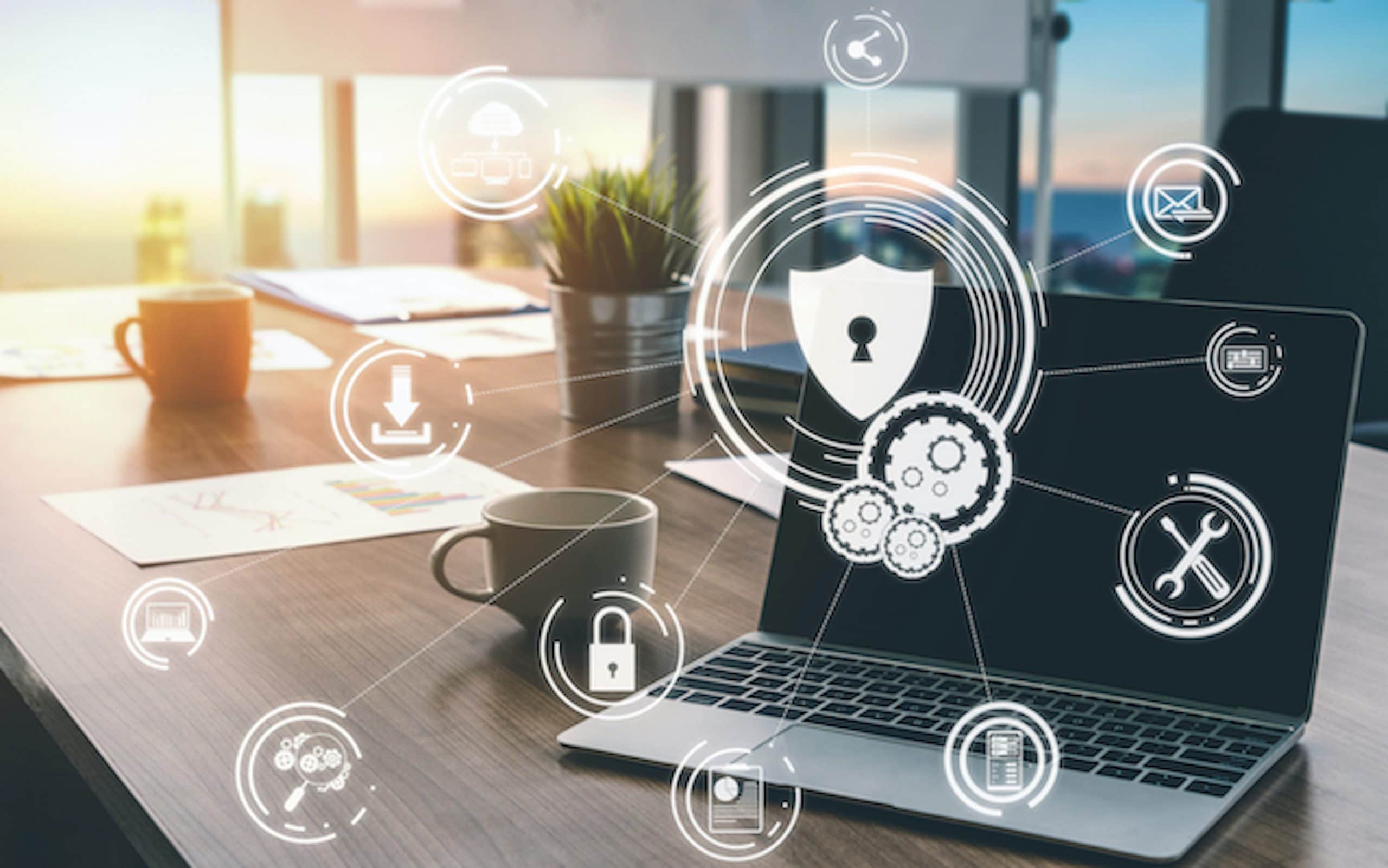Over the last decade, laptops have continued to take market share away from desktop computers. They’re much easier to take with you anywhere and have become just as powerful and Ways to Protect the Data are difficult.
In 2010, there were 25% more laptops sold worldwide than desktops, and in 2019, that percentage advantage rose to 61%.
The portability of laptops is the main reason they’re so popular. They can be easy transported between work and home, used on an airplane, while in a waiting room, etc.
But that portability can also bring risk if the laptop isn’t properly protected with IT security and other safeguards. A laptop theft happens every 53 seconds and the typical laptop has a 1 in 10 chance of being stolen.
If your data isn’t properly protected, it can be more at risk on a laptop than a much-less-portable desktop computer.
How to Protect Your Laptop Files & Data
From phishing attacks to theft to well-meaning family members, there are several ways that the files and other account data you keep on your laptop can be at risk.
Here are several smart safeguards you can put in place to protect it.
Use a User and Guest Account
If you happen to be out with your family and have your laptop with you, a family member may ask to use it. Or you may need to keep a child entertained.
But if you allow them to use your main user account, you could end up with accidentally deleted files, email, or worse.
To ensure that only you can get into your main computer files, create a guest user account on your laptop. Then if someone else needs to use your computer, have them use the guest account so they can’t access any of your data.
In Windows 10, you have the option to add user accounts for family or non-family users.

When setting up your own account, make sure to use a password or PIN that others won’t know.
Password Protect Sensitive Files
Do you keep a spreadsheet of client SSNs or other sensitive details on your laptop? If so, you should provide an additional safeguard by adding a password protection to that specific file.
There are several software tools that will give you the ability to add password protection to a file. Here’s an example of how to password protect an Excel workbook.
Encrypt Your Hard Drive
If your laptop is stolen, it can give a criminal access to all types of information. Just think of all the accounts that you may be logged into.
Additionally, many users store their passwords in their browsers, which could be easily used by anyone with your computer in their possession.
You can lock a thief out of your data by encrypting your laptop hard drive. This makes it impossible for anyone without the encryption key to access your files.
Use the Find My Laptop Feature
Whether your laptop is lost or stolen, being able to track it from another device can be a live saver when it comes to getting your data and device back.
Both Windows 10 and macOS have a “Find My Device” feature that you can enable.
- Windows 10: Type “Find my device” into the search bar to get the link to that area of the account settings to turn on Find my device and enable the laptop’s location setting.
- macOS: Go to System Preferences > Security & Privacy. On Privacy, turn on Location Services. Then go back to System Preferences and go to Apple ID, click iCloud in the sidebar and select Find My Mac.
Keep Your Laptop Updated/Patched
A majority of data breaches happen due to unpatched system vulnerabilities. If you don’t keep your laptop updated, it can lead to a ransomware infection, virus, or other type of malware taking over your system.
There are three main places you need to look for and apply patches and updates:
- The operating system
- Your software
- Your firmware (this is usually done in a manufacturer’s app, such as “HP Support Assistant” or “Dell Support Assist”)
Keep Your Device Backed Up
Because of the portable nature of laptops. They’re much more likely to get dropped or damaged, which can lead to data loss, depending upon the severity.
To protect your laptop data from being lost due to damage, loss, or theft, it’s important to ensure your entire hard drive is backed up using a backup and recovery program.
If you’re only copying files to a file storage app (i.e. OneDrive or Google Drive), then you won’t be backing up any of your software programs or settings.
Plus, files that are syncing to cloud storage can get overwritten or accidentally deleted. That’s why it’s important to use a service that is specifically designed for data backup and recovery.
Keep Your Files Secure with Help from RCOR
Our North Carolina IT experts can assist you with solutions for backup, encryption, and other safeguards to ensure your laptop data is protected.
Contact us today to schedule a consultation. Call 919-263-5570 or contact us online.




